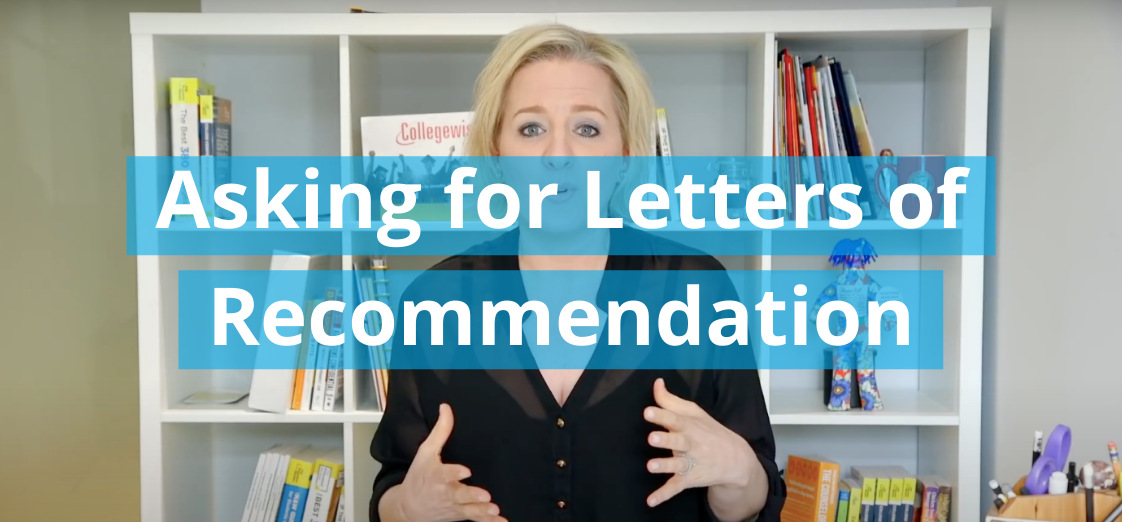Junior year is less about striving for perfection and more about using the time to reflect on who you are and who you want to become. In this blog, we'll highlight 3 valuable questions every junior should ask themselves and how it ties into the college admissions process.
Table of Contents
- Why High School Junior Year Matters & Common Misconceptions
- Questions Every Junior Should Ask Themselves
- How Reflection in Junior Years Ties into the College Admissions Process
Key Takeaways
- College applications tell a bigger story than just who you are academically, and junior year is about defining your narrative, not chasing perfection.
- Through self-reflection in junior year, students can identify their values, passions, motivations, and how college acts as a stepping stone for who they hope to become in the future.
- Asking thoughtful questions helps strengthen your letters of recommendation, essays, and college research—application components colleges utilize when determining if a student is a good fit for their institution.
Why High School Junior Year Matters & Common Misconceptions
When I worked in admission, it was common to hear colleagues talk about the importance of junior year, a story we told over and over to eager high school students visiting our campuses. But in my years working on the college counseling side, I see how much of a gap there is for high school juniors receiving that message between what’s said and what’s heard.
It’s a gap that can cause both consternation and unnecessary stress. Because it’s easy to hear “important” and assume perfect grades. If it’s an important year, colleges must mean get good grades. And sure, colleges want to see you performing well this year. But trying to define what colleges singularly want is pretty impossible when there are over 4,000 colleges and universities in the US alone. Because most colleges admit most of their applicants. And most colleges also admit students with Bs or Cs on their transcripts. “Performing well” doesn’t mean perfection; it means taking challenging classes for you and doing well relative to what you’re capable of.
But if we're talking about selective colleges who employ holistic admission (which, as a reminder, is a narrow band of the broader pool of American institutions), then "the importance of junior year in high school" doesn't hinge simply on your grades. Because your eventual application tells a much bigger story of who you are -- beyond the letter assigned to you on a transcript at the end of a year.
If you’re at the start of your junior year, you have control over the story you eventually tell. And especially for those students eyeing more selective colleges, it starts with being able to answer these three questions.
Questions Every Junior Should Consider Asking Themselves
Why Do I Do What I Do?
A lot of our best counseling work here at Collegewise happens at the crossroads.
- "Do I take AP Spanish or double up on science my senior year?"
- "Should I go back to camp to work as a counselor or get a part-time job instead?"
Because the answer will always lie in what motivated you and don't just take our word for it: whether it’s Georgia Tech, Harvard, Tulane, or MIT, the evidence abounds that the “why” will always be more important than the “what.” The students who can earnestly and excitedly answer, "Why do I do this?" thrive in the admission process and their eventual college homes. Whether it's a supplemental essay asking yet again, "Why do you do X activity?" or "What do I want to learn more about?" colleges want members of their community to have a strong sense of self and understand what intrinsically motivates them.
How Have I Impacted Others in My Community?
The first step here is defining and understanding what and who your community is. For some students, it's their family. For others, it's a team or club. And for some, it's their faith community or neighborhood. You can't begin to impact the people around you without first understanding them. And that awareness of the world is crucial to the college process and, frankly, life itself.
It's why colleges -- especially larger, more diverse campuses -- increasingly ask this in their applications: How would you define the world you come from, and how it has impacted you (or have you impacted it)?
This runs counter to our oft-well-intended notions about community service. You'll never find our counselors asking for a community service log sheet. Because rather than sum up those hours, colleges want to understand how you have impacted those around you. Consider how MIT’s Dean of Admission frames this, in response to MIT signing onto Turning the Tide:
“We will also consider what kind of a citizen a student is: if they know the material well in a class, will they help others who are struggling? Do they take care of other family members? Do they have a genuine commitment to helping others, or are they doing things simply to look good on the application? The essay question on our application where we ask about this never mentions the phrase “community service,” but asks students to tell us about how they have improved the lives of others in their community. And it’s not the magnitude that counts as much as the intention and character of the student.”
A common misconception students have going into the college application process is that colleges prioritize magnitude over value intention. Although committing hundreds of hours to an extracurricular activity while juggling coursework is impressive, admissions officers are more concerned with the quality of that engagement. It's important for students to move beyond hours and consider how they are creating a meaningful impact in the time they invest in their academic pursuits and extracurricular initiatives.
What Kind of Person Do I Want to Become?
All of these questions build to this: who are you, and who do you want to grow to become? Colleges are aware (and hopeful) that you aren't fully formed when you come to their campuses. Their purpose is to encourage your growth in unexpected ways -- be it through their core curriculum, their events on campus, or residential life. And the best eventual applicants can articulate that perfect synthesis of a willingness to evolve and grow, coupled with a sense of who you are at your best.
You may wonder why all this is important. Well, aside from the more obvious “because it’s the nice thing to do,” it’s because colleges value this, too. Whether it’s Tulane, MIT, or U Georgia (all vastly different places), colleges care deeply about how you engage with others. If they didn't the only component they'd require from students during application season would be an academic transcript. Instead, they require supplemental information to learn more about a student's story up until that point and their future potential.
You might be a member of their community soon too, and they want to know how you interact with those around you. Are you the student who only pays attention when the teacher says that material is on an upcoming test? Or the student who picks up trash after class or asks how someone’s day is going who isn’t in your social circle? I assure you: teachers notice these things. And colleges learn about it through your letters of recommendation.
In this next section, we'll discuss how these questions tie into larger components of the application.
How Reflection in Junior Year Ties into the College Application Process
Letters of Recommendation
Many colleges request letters of recommendation from students in tandem with their academic transcripts. Typically, students are expected to submit 3 letters of recommendation—two from teachers and one from a counselor.
For juniors, one or two of your teachers will be writing about the story of who you were this academic year. Contrary to popular belief, you have control over the story they write. Yes, class can be challenging. Yes, it may bring its share of ups and downs. But how you connect with teachers, the person you show up as, and how you impact your community will make a tremendous difference in how you're described in your letters of recommendation.
Personal Statement and Supplemental Essays
Reflecting on the "whys" and "whats" helps uncover themes that are central to your identity. These themes become the backbone of your personal statement and provide an authentic view of who you are, who you hope to become, and how college will act as a stepping stone for that journey.
We've touched on the types of supplemental essay questions and why colleges request responses in the first place. By asking questions of self-reflection, they can use this unique opportunity to do more than just answer a question—they can tell their story their way and leave a lasting impression.
Drive Effective College Research
College is the place students call home for at least four years. Finding the right fit isn't easy, especially when you're unsure about who you are and what you want. Taking a moment to reflect on your passions, values, and goals is the first step toward determining where you'll be the most successful.
Conclusion
Junior year is less about checking off boxes than it is about using the time to self-reflect. It's also the time to consider your relationships with others, the network you're building, and how all of this ties into your college application. Remember, the story you tell through your actions and reflections today shapes the narrative you tell colleges tomorrow.
Happy college planning! If you or your family could benefit from working with a Collegewise counselor to help navigate college application preparation, we're here to help. Start by scheduling a free consultation with one of our representatives.
About Us: With more than twenty years of experience, Collegewise counselors and tutors are at the forefront of the ever-evolving admissions landscape. Our work has always centered on you: the student. And just like we’ve always done, we look for ways for you to be your best self - whether it’s in the classroom, in your applications or in the right-fit college environment. Our range of tools include counseling, test prep, academic tutoring, and essay management, all with the support of our proprietary platform, leading to a 4x higher than average admissions rates.



.png?width=600&height=200&name=Blog%20CTAs%20(7).png)
/Ebook%20Resources%20Page%20(1).png?width=600&height=200&name=Ebook%20Resources%20Page%20(1).png)


